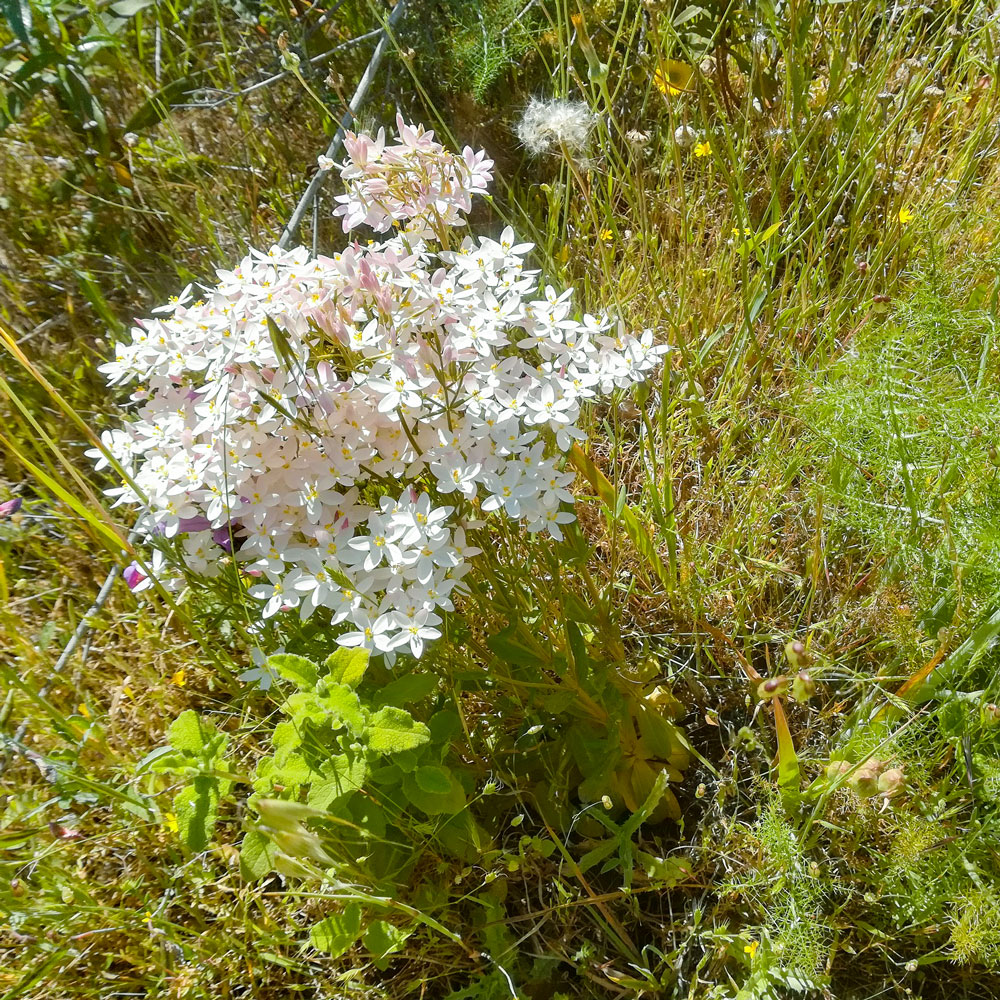
Sustainable and organic
We consistently manage our land ecologically right from the start
Our site was largely left to its own devices from 2013 until we purchased it in 2021. Thus, the plantations were also not treated with agrochemicals. Fortunately, olive trees are quite hardy and have survived this period for the most part. We now farm the Herdade consistently organically from the beginning. This high standard corresponds to our connection with nature.
We regulate pest infestations through preventive measures and by systematically reducing stress on the trees. These measures include annual moderate pruning, consistent mulching of tree rows, and support crops.
Thus, between our rows of trees grow clebalant and many other native herbs that support plant health. Shade trees are planned in the fruit tree plantings. More than a kilometer of hedges will grow up around the plantings in the next few years.
On the other hand, we reduce tillage to a minimum. Thus, the tramlines are not broken up with disc harrows or worked with flail mulchers, but mowed and the meadow cuttings are justly placed in the rows of trees. This is clearly an additional expense. But the many small animals – spiders, beetles, lizards, tree frogs, etc. – are protected and the soil is protected from erosion.
Everything that is left over from maintenance benefits the trees as mulch. In addition to fertilizing, this mulch layer keeps the soil cooler and moister and feeds a rich soil life. This reduces heat and drought stress on trees, contributing to plant health.
We only need more tillage when planting new crops or to repair old damage. Regular tillage is limited to our self-sufficient garden, where the annually changing crops require it.
The result of this careful approach is highly aromatic fruit and healthy trees. With these measures, we make a substantial contribution to the well-being of nature as a whole, in addition to the beneficial influences on our plantations.
We also rely on solar power from our roofs for further processing. Wherever possible, we rely on regenerative systems.

